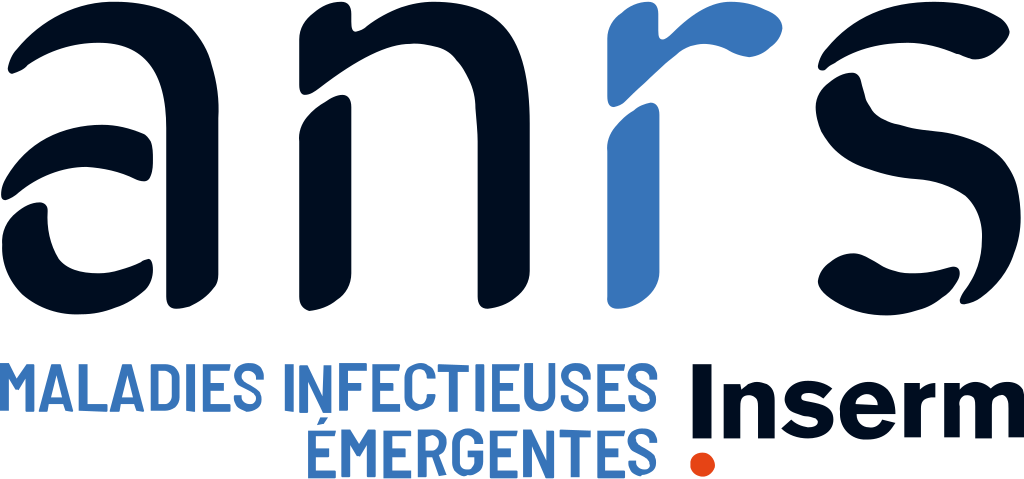PROTEASE INHIBITORS
| Mutations associated with resistance | Mutations associated with « possible resistance » | |
| LPV/r | ||
| ATV/RTV 300/100 mg QD | ||
| TPV/RTV 500/200 mg BID | ||
| DRV/RTV** 600/100 mg BID800/100 mg QD |
|
LPV: lopinavir, ATV:atazanavir, TPV: tipranavir, DRV : darunavir, RTV: ritonavir.
For indinavir, saquinavir, nelfinavir and fosamprenavir refer to previous rules (See Archives, September 2017, version 27).
* Insufficient data for HIV-1 subtype non-B.
** Please note that rules are different for DRV/RTV 600/100 mg BID and 800/100 mg QD.
For DNA provirus, Impact of stop codons and G to A mutations on ARV resistance is unknown.
1/ Marcelin AG, Cohen-Codar I, King MS, Colson P, Guillevic E, Descamps D, Lamotte C, Schneider V, Ritter J, Segondy M, Peigue-Lafeuille H, Morand-Joubert L, Schmuck A, Ruffault A, Palmer P, Chaix ML, Mackiewicz V, Brodard V, Izopet J, Cottalorda J, Kohli E, Chauvin JP, Kempf DJ, Peytavin G, Calvez V. Virological and pharmacological parameters predicting the response to lopinavir-ritonavir in heavily protease inhibitor-experienced patients. Antimicrob Agents Chemother. 2005 May;49(5):1720-6.
2/ Maillard A, Chapplain JM, Tribut O, Bentué-Ferrer D, Tattevin P, Arvieux C, Michelet C, Ruffault A. The use of drug resistance algorithms and genotypic inhibitory quotient in prediction of lopinavir-ritonavir treatment response in human immunodeficiency virus type 1 protease inhibitor-experienced patients. J Clin Virol. 2007 Feb;38(2):131-8.
3/ Masquelier B et al. Human Immunodeficiency virus type 1 genotypic and pharmacokinetic determinants of the virological response to lopinavir-ritonavir-containing therapy in protease inhibitor-experienced patients. Antimicrob Agents and Chemother 2002 ; 46 : 2926-2932.
4/ Colonno RJ et al. Identification of I50L as the signature atazanavir (ATV)-resistance mutation in treatment naïve HIV-1 infected patients receiving ATV-containing regimens. JID 2004; 189: 1802-10.
5/ Vora S et al. Clinical validation of atazanavir/ritonavir genotypic resistance score in PI-experienced patients. AIDS 2006 Jan 2;20(1):35-40.µ
6/ Marcelin AG, Flandre P, de Mendoza C, Roquebert B, Peytavin G, Valer L, Wirden M, Abbas S, Katlama C, Soriano V, Calvez V. Clinical validation of saquinavir/ritonavir genotypic resistance score in protease-inhibitor-experienced patients. Antivir Ther. 2007;12(2):247-52.10/ Marcelin AG et al. Tipranavir-ritonavir genotypic resistance score in protease inhibitor-experienced patients. Antimicrob Agents Chemother. 2008 Sept;52(9).
7/ Marcelin AG et al. Mutations Associated with Response to Boosted Tipranavir in HIV-1-infected PI-experienced Patients. 14th Conference on Retroviruses and opportunistic Infections. 25-28 february 2007, Los Angeles, California, poster 612
8/ Friend J et al. Isolated lopinavir resistance after virological rebound of a ritonavir/lopinavir-based regimen. AIDS. 2004 Sep 24;18(14):1965-6.
9/ de Mendoza C et al. Prevalence of the HIV-1 protease mutation I47A in clinical practice and association with lopinavir resistance. AIDS 2006 Apr 24; 20(7): 1071-4.
10/ de Meyer S, Vangeneugden T, van Baelen B, de Paepe E, van Marck H, Picchio G, Lefebvre E, de Béthune MP. Resistance profile of darunavir: combined 24-week results from the POWER trials. AIDS Res Hum Retroviruses. 2008 Mar;24(3):379-88.
11/ Nijhuis N et al.. A novel genetic pathway involving L76V and M46I leading to lopinavir/r resistance. XVI International HIV drug resistance workshop : basic principles and clinical implications, 12-16 June 2007, Barbados, West Indies, abstract 127
12/ Delaugerre C et al. Protease inhibitor resistance analysis in the MONARK trial comparing first-line lopinavir-ritonavir monotherapy to lopinavir-ritonavir plus zidovudine and lamivudine triple therapy. Antimicrob Agents Chemother. 2009 Jul;53(7):2934-9.
13/ Hill A et al. Identification of new genotypic cut-off levels to predict the efficacy of lopinavir/ritonavir and darunavir/ritonavir in the TITAN trial. HIV Med. 2009 Jul 6.
14/ Di Giambenedetto S et al. A rigorous statistical learning method for the estimation and validation of weighted drug susceptibility scores applied to in vivo virological outcome prediction in atazanavir/ritonavir-containing HAART. XVII International HIV drug resistance workshop : basic principles and clinical implications, 10-14 June 2008, Sitges, Spain, abstract 95.
15/ Bethell R et al. No effect of subtype on susceptibility and virological response to TPV/r for treatment experienced patients. XVII International HIV drug resistance workshop : basic principles and clinical implications, 10-14 June 2008, Sitges, Spain, abstract 111.
16/ Descamps D et al. Mutations associated with virological response to darunavir/ritonavir in HIV-1-infected protease inhibitor-experienced patients. J Antimicrob Chemother. 2009 Mar;63(3):585-92.
17/ De Meyer S. et al. Influence of baseline protease inhibitor resistance on the efficacy of darunavir/ritonavir or lopinavir/ritonavir in the TITAN trial. J Acquir Immune Defic Syndr. 2008 Dec 15;49(5):563-4.
18/ De Meyer S. et al. Phenotypic and genotypic determinants of resistance to darunavir: analysis of data from treatment-experienced patients in POWER 1, 2, 3 and DUET-1 and 2. XVII International HIV drug resistance workshop : basic principles and clinical implications, 10-14 June 2008, Sitges, Spain, abstract 31.
19/ De Meyer S. et al. Confirmation of the negative impact of protease mutations I47V, I54M, T74P and I84V and the positive impact of protease mutation V82A on virological response to darunavir/ritonavir. XVII International HIV drug resistance workshop : basic principles and clinical implications, 9-13 June 2009, Fort Myers, Florida, abstract 126.
20/ Gong YF. Et al. In vitro resistance profile of the human immunodeficiency virus type 1 protease inhibitor BMS-232632. Antimicrob Agents Chemother. 2000 Sep;44(9):2319-26.
21/ Malan DR; et al. Efficacy and safety of atazanavir, with or without ritonavir, as part of once-daily highly active antiretroviral therapy regimens in antiretroviral-naive patients. J Acquir Immune Defic Syndr. 2008 Feb 1;47(2):161-7.
22/ Malan DR et al. 96-week efficacy and safety of atazanavir, with and without ritonavir, in a HAART regimen in treatment-naive patients. J Int Assoc Physicians AIDS Care (Chic). 2010 Jan-Feb;9(1):34-42.
23/ Lambert-Niclot et al. Emerging resistance mutations in protease inhibitor naive patients failing atazanavir based regimen (ANRS multicenter observational study). Journal of Antimicrobial Chemotherapy 21-Mar-2018 (in press).

